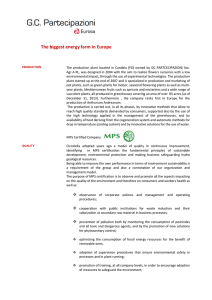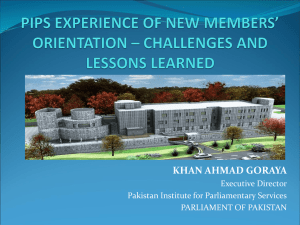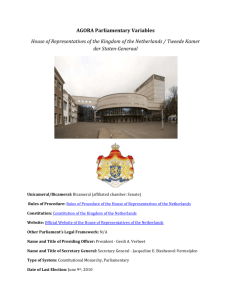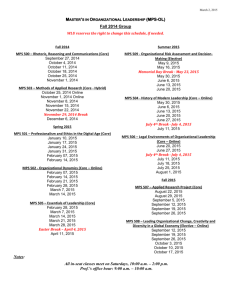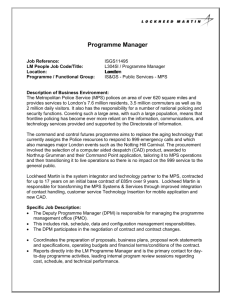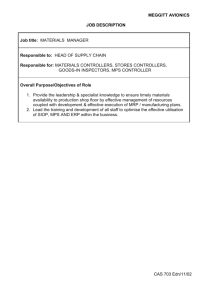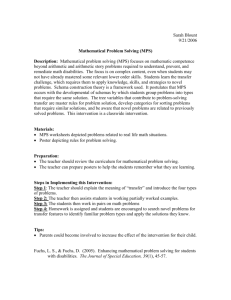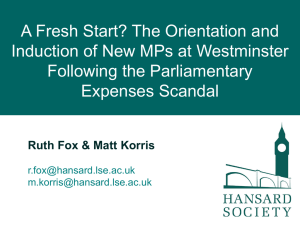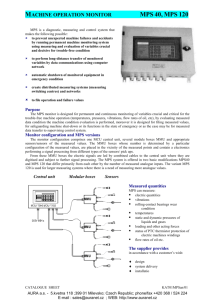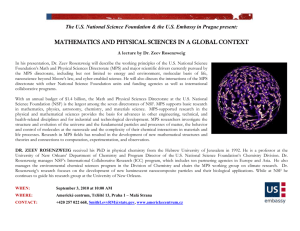PowerPoint
advertisement
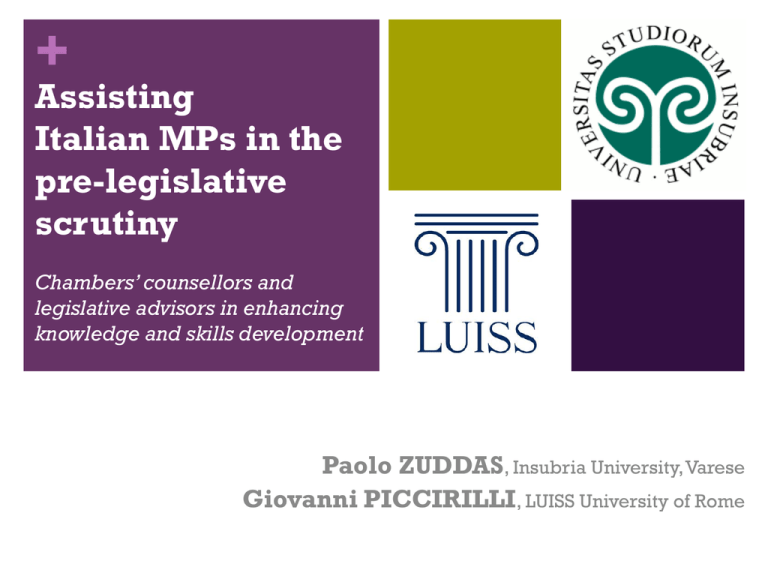
+ Assisting Italian MPs in the pre-legislative scrutiny Chambers’ counsellors and legislative advisors in enhancing knowledge and skills development Paolo ZUDDAS, Insubria University, Varese Giovanni PICCIRILLI, LUISS University of Rome + 1 Theoretical framework The importance to Parliaments - and to the individual MPs - of being (self-)informed The necessity of “good” information (DietrichSchulz, 2008) The role of the professional development programs in enhancing MPs’ skills (Coghill et al., 2008) A suggestion for broadening this approach, including not only the training events, but also the assistance in the concrete deploying of the legislative work: - case study limitation: typically, the Italian Parliament registers a very low turnover (less than 1/3 in the last general elections), a high average age, long previous political careers of its members => training events are sparsely attended and considered of marginal importance - theoretical reasons: lifelong learning in the parliamentary work? + 2 The “good” information Autonomously collected (independently from the Government) Objective Immediate (or promptly available) Concise Genuinely relevant Precise Interdisciplinary + 3 The role of parliamentary administrations – types of activities The (direct) supply of information Collection and selection of information Verification of information (especially on financial effects of the bills) General role of experts in procedures, legislation in force, legal drafting The (indirect) assistance in the use of tools for an autonomous selection of information Libraries, repositories, thematic collection of works IT assistance, e-learning + 4 Effects of the clerks’ support Organising and presenting information to support the legislative work Indispensability of the dossier of documentation for starting the debate before the Committees Ex ante analysis (impact assessment, administrative feasibility) Ex post analysis, control of the implementation + 5 Flaws and margins for improvement Traditional formal-legalistic background of the Parliamentary officers Necessity of improvement of economic and social science “sensitivity” Lack of coordination between the administrative apparatuses of the two Houses, risks of duplications + 6 MPs’ staff, categories A complex galaxy of advisors and assistants Personnel working for the political groups Staff of the indivisual MP pivotal function between Houses administration and MPs (more) direct assistance Personnel assigned to those MPs appointed to particular institutional duties (President of Committees, President of political groups, …) Case study: the Committee on legislation, a “bridge” towards the Academia? + 7 Differences in the preliminary work on the draft legislation Parliamentary administrations MPs’ staff if general potential when pre-emptive subsequent how complete tailored why? purpose (bill) limitation propositional + 8 Conclusions Undoubted effect of “influence” (more or less neutral/political) of both the categories on the selection of information and, in the end, on the genuineness of the political representation Therefore, the comprehensive assistance activity should be intended in a unitary mode (of course, neither ignoring their reciprocal differences, nor emphasizing them) If adequately coordinated (with a special attention on avoiding duplications), they can both contribute to aware and pondered legislative decision (so, politically “strong”) … but in times of economic crisis… + 9 Suggestions and comments are more than welcome! Paolo Zuddas paolo.zuddas@uninsubria.it Giovanni Piccirilli gpiccirilli@luiss.it
